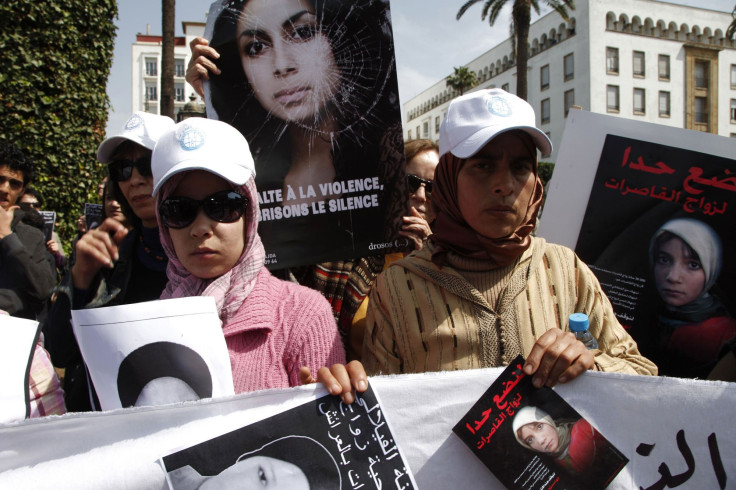Morocco Scraps Law That Allowed Rapists To Marry Their Victims

Women’s rights groups in Morocco have embraced a ruling by the government’s ministry of justice to scrap a law that once permitted rapists and kidnappers to go free if they agreed to marry their victims.
A campaign to eliminate the controversial law gained momentum last spring after a 16-year-old rape victim named Amina Filali committed suicide seven months after she was forced to marry her rapist, an abusive 25-year-old man named Moustapha Fellak.
According to reports, Filali's father was pressured by court officials to force his daughter to marry her rapist rather than seek a prosecution against the man who committed the assault.
The Justice Ministry claimed at the time that sex between Filali and her attacker was consensual.
Moroccan Prime Minister Abdelilah Benkirane subsequently argued in parliament that the marriage provision in the law was rarely applied.
“In 550 cases of the corruption of minors between 2009 and 2010, only seven were married under ... the penal code; the rest were pursued by justice,” he said last month.
Nonetheless, this ancient practice exists across the Middle East and South Asia.
The Associated Press reported that activists in Morocco now want the government to impose more legislation to reduce the sexual violence perpetrated on Moroccan women.
"Changing this article [of the penal code] is a good thing, but it doesn't meet all of our demands," Khadija Ryadi, president of the Moroccan Association for Human Rights, said in a statement. "The penal code has to be totally reformed because it contains many provisions that discriminate against women and doesn't protect women against violence."
"The law doesn't recognize certain forms of violence against women, such as conjugal rape, while it still penalizes other normal behavior like sex outside of marriage between adults,” Fouzia Assouli, president of the Democratic League for Women's Rights, complained to the AP.
Human Rights Watch had long campaigned against Article 475, the part of the penal code that allowed rapists to wed their victims.
“Article 475, as bad as it is, is only the tip of the iceberg in Morocco’s failure to protect women and girls from violence,” Sarah Leah Whitson, Middle East and North Africa director at HRW, said.
“Despite reforms in Morocco’s 2004 family code, girls and women are far from being protected under the law when they are the victims of violence. ... Article 475 not only reflects social mores harmful to women and girls, it reinforces them, with the judiciary presiding over the repression. Laws alone cannot solve deep-rooted social problems. But without the adoption and enforcement of a legal regime that treats rape and violence against women always as serious crimes, there can be no hope of changing practices,” Whitson said.
© Copyright IBTimes 2024. All rights reserved.











